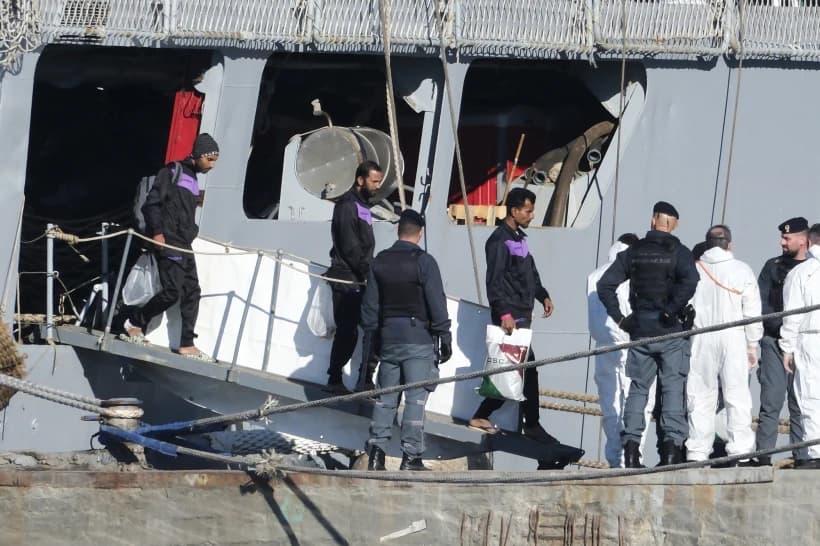ROME – One year ago, an Italian pastor made national headlines for welcoming migrants and homeless persons to sleep in his urban parish during cold winter nights, braving the opposition of incensed locals who circulated a petition calling for his removal.
Today, Father Giovanni Kirschner of the parish of Santa Maria del Sile, located in the city of Treviso, in the northern Italian region of Veneto near the border with Austria, is at it again.
On Nov. 11, roughly thirty asylum seekers were expelled from a parking structure in Treviso where they had been sheltering, ostensibly on the grounds that a certificate certifying the fire protection system in the structure was out of date.
Seventeen migrants were relocated to a local barracks of the carabinieri, the Italian military police, but the facility couldn’t hold all thirty, so the remaining thirteen found shelter in a large tent erected on parish grounds.
The tent does not have any heat, which is a serious problem with nighttime temperatures in Treviso hovering around freezing, but the migrants are at least protected from the elements. Volunteers from the parish have provided them simple meals, such as a breakfast of warm tea and cookies, and are collecting mattresses and blankets.
Use of the tent, however, is a temporary solution. It was erected to host a parish celebration which begins Friday, so Kirschner has announced that if a solution isn’t found beforehand, he will once again invite the group to sleep inside the church.
Tonight, Nov. 13, Kirschner has called parishioners together to discuss the situation, including an update on ongoing discussions with police, local authorities and the Diocese of Treviso to attempt to resolve the situation.
When a similar situation unfolded in December 2023, which resulted in roughly nine migrants sleeping in the church on cold winter nights, it set off a controversy in the community, with some residents, led by a member of Italy’s right-wing, anti-immigrant Lega party, arguing that Kirschner was offending the sensibilities of Mass-goers and turning his parish into a magnet for homeless persons and immigrants.
Residents who spoke to local media complained of one homeless man who appeared to be psychologically disturbed, and who would stand outside the church shouting “the end is near!” and similar slogans. Others complained that the migrants left the church a shambles, and that they had stopped taking their children to Mass.
Kirschner, however, did not change course, defending the decision to open the church’s doors in a letter to his parishioners.
While acknowledging a problem with “drunk or otherwise annoying people” among the migrants in the neighborhood for some time, Kirschner insisted the reality was that the lone local shelter didn’t have the bedspace to accommodate all those who needed it, and there was also no place for people to remain safe during the day.
“The most serious shortage has been the absence of anyone who can stand by these people and accompany them in finding a solution and a better life,” Kirschner wrote. “Really, all we’ve done is to give them a place to sleep and something to eat, but without helping them to change their situation.”
“Clearly, the church isn’t a shelter, and in that sense it isn’t right that people sleep there,” he wrote. “But can we think about being right in a world that’s wrong? In a rich city, full of empty houses, which leaves people to sleep in the streets, that leaves people to die in the street?”
“We got out of line,” Kirschner said. “We crossed the border that divides the ‘good people’ from the outcasts of society … we put ourselves on the wrong side.”
Local Mayor Mario Conte, a member of the Lega party, called Kirschner’s decision last year a “stunt,” and this time has insisted that the city has exhausted its resources in dealing with the homeless population, calling on the business community to step up.
In 2015, Pope Francis publicly called upon parishes and other church facilities to open their doors amid Europe’s refugee crisis.
“May every parish, every religious community, every monastery, every sanctuary in Europe host a family, starting with my diocese of Rome,” Francis said during his Sunday Angelus address on Sept. 6, 2015.
He also asked bishops throughout Europe to have their dioceses take up his call to “express the Gospel in concrete terms and take in a family of refugees.”












